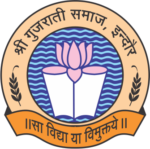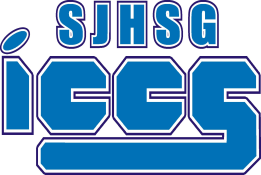- Instructor: guj_innovative
- Lectures: 12
- Duration: 148 weeks
Course Overview :
B.Sc in Computer Science is a three-year undergraduate degree course that deals with the principles and applications of the computer. The main agenda of the degree course is the technical implementation of computers and computer systems. Students in the three-year degree course undertake various term papers, practical sessions and learning theoretical foundations of the computer.
The main aim of this program is to create quality professionals and research fellows who can work in every sector of the world by implementing the technology of computer systems and software.
Eligibility criteria :
The minimum eligibility criteria for this course are:
- Students must have cleared higher secondary classes (Class 12) from a recognized board with 50%-60%of the score.
- The stream should be science with Physics, Chemistry, and Mathematics. Having computer Science is also favorable in some universities.
Job Opportunities:
The large spectrum of job opportunities available to aspirants of B.Sc Computer Science are enlisted below:
- Software Developer to Project Manager to Software Architect
- Testing Engineer to QA Specialist
- Web Developer / Mobile App Developer
- Technical Support Engineer to Technical Director
- IT Technical Content Developer
B.Sc Computer Science Syllabus
| I Year | |
| Group | Subject |
| Foundation | Hindi |
| English | |
| Entrepreneurship | |
| Computer Science | Fundamentals of Computers |
| Programming in C | |
| Practical | |
| Mathematics | Algebra and Trigonometry |
| Calculus and Differential Equations | |
| Vector Analysis and Geometry | |
| Physics | Mathematical Physics, Mechanics and Properties of Matter |
| Thermodynamics and Statistical Physics | |
| Practical | |
| II Year | |
| Group | Subject |
| Foundation | Hindi |
| English | |
| Environment | |
| Computer Science | Object Oriented Programming Concept Using C++ |
| Data Structures | |
| Practical | |
| Mathematics | Abstract Algebra |
| Advanced Calculus | |
| Differential Equations | |
| Physics | Optics |
| Electrostatics, Magneto statics and Electrodynamics | |
| Practical | |
| III Year | |
| Group | Subject |
| Foundation | Hindi |
| English | |
| Fundamentals of Computers | |
| Computer Science | Database Management System |
| Operating System Concepts | |
| Practical | |
| Mathematics | Linear Algebra and Numerical Analysis |
| Real and Complex Analysis | |
| Optional Paper*
1.Statistical Methods 2.Discrete Mathematics 3.Mechanics 4.Mathematical Modeling 5.Financial Mathematics |
|
| Physics | Quantum Mechanics and Spectroscopy-I |
| Quantum Mechanics and Spectroscopy-II | |
| Practical | |
-
First Year
In this section we'll show you how this course has been structured and how to get the most out of it. We'll also show you how to solve the exercises and submit quizzes.
-
Lecture 1.1Foundation Hindi English Entrepreneurship
-
Lecture 1.2Computer Science Fundamentals of Computers Programming in C Practical
-
Lecture 1.3Mathematics Algebra and Trigonometry Calculus and Differential Equations Vector Analysis and Geometry
-
Lecture 1.4Physics Mathematical Physics, Mechanics and Properties of Matter Thermodynamics and Statistical Physics Practical
-
-
Second Year
In this section you'll learn some basic concepts of programming languages and how to use them. You'll also learn how to write clean code using different code editors and tools.
-
Lecture 2.1Foundation Hindi English Environment
-
Lecture 2.2Computer Science Object Oriented Programming Concept Using C++ Data Structures Practical
-
Lecture 2.3Mathematics Abstract Algebra Advanced Calculus Differential Equations
-
Lecture 2.4Physics Optics Electrostatics, Magneto statics and Electrodynamics Practical
-
-
Third Year
In this section you'll learn some core concepts of Object Oriented Programming. You'll also learn how to structure the data, debug and handling exceptions.
-
Lecture 3.1Foundation Hindi English Fundamentals of Computers
-
Lecture 3.2Computer Science Database Management System Operating System Concepts Practical
-
Lecture 3.3Mathematics Linear Algebra and Numerical Analysis Real and Complex Analysis Optional Paper* 1.Statistical Methods 2.Discrete Mathematics 3.Mechanics 4.Mathematical Modeling 5.Financial Mathematics
-
Lecture 3.4Physics Quantum Mechanics and Spectroscopy-I Quantum Mechanics and Spectroscopy-II Practical
-


